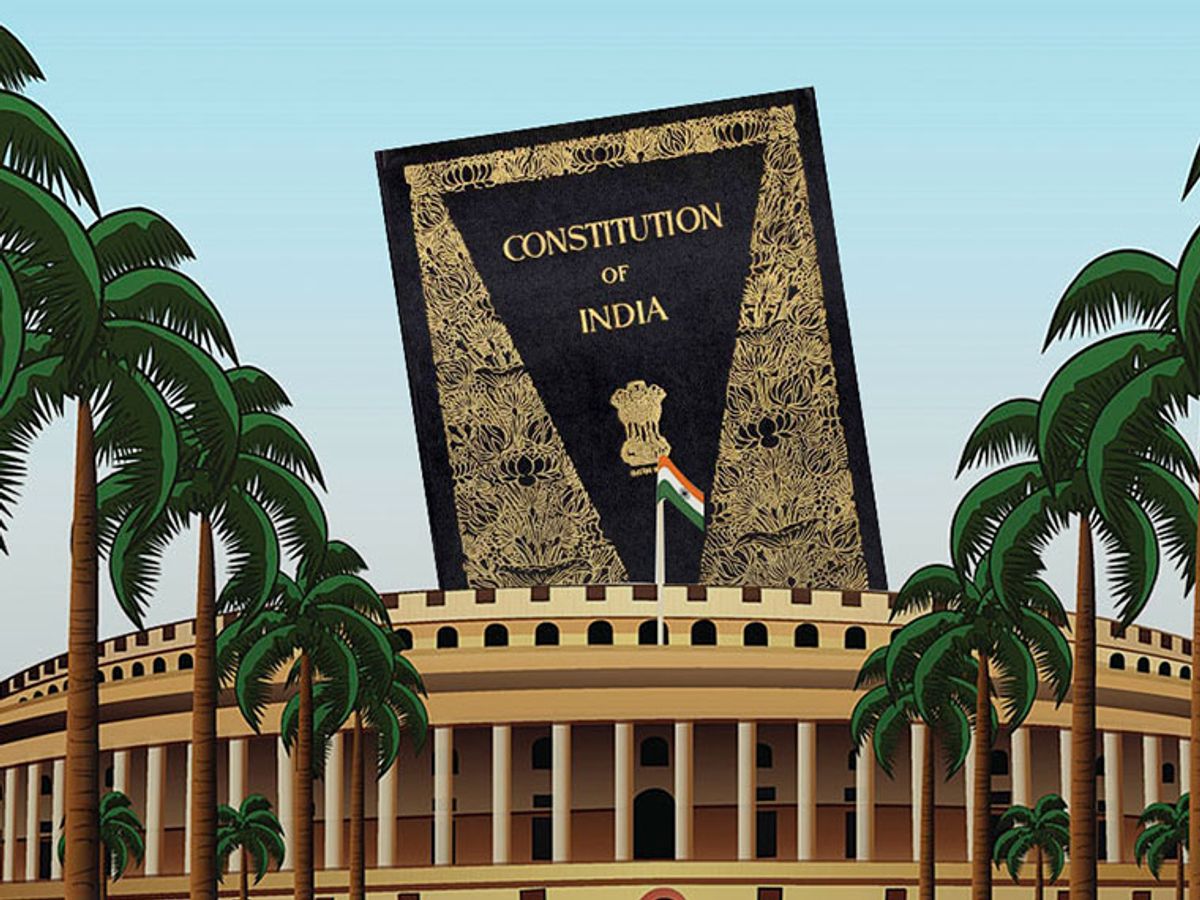The 26th of November 1949 was a historic day for recently-Independent India. Although it is not as widely celebrated as other historic days such as the Independence Day and Republic Day is celebrated, this too is an important day. This day came after 2 years and 166 days of insightful discussion, hardwork and inclusiveness of the Constituent Assembly which was headed by Dr. B. R Ambedkar. This is the day our nation’s constitution was adopted, although it came into force nearly 2 months later, on the 26th of January 1950 which India celebrates as Republic Day. The reason for the 2 month gap is due to the fact that during the gap, the Constitution was used for thorough reading and translation, from English to Hindi.
The term “Constitution” has widely been used in terms of governance, lawmaking and politics. What exactly does that term mean? The Constitution is the fundamental document which defines the basic framework, the structure and organs of the Government and the principles upon which they function. It can be defined as the “spirit” of the state. The Constitution guarantees fundamental rights to its people, and lists out the fundamental duties that are bound on the people of the state. The Constitution also lays out basic guidelines on how the state must perform its duties, and makes a framework that is to be followed when laws are being made. Hence, not only does the Constitution regulate the actions and conduct of the people of the state, but also regulates the conduct of the government.
How important is the Constitution in our country? The Constitution makes sure that not only the people, but the government is doing its duty in a proper and appropriate manner. It promotes the principle of “Rule of Law”, which states that all people, institutions and entities are accountable under laws, and that nobody and nothing is above the law. This is similar to the idea of “Constitutionalism”, wherein the authority of the government is not absolute, and is limited and specified by the Constitution or other fundamental laws. This is important in order to ensure that the state does not get too powerful and behave as it wishes. This prevents lawlessness in the state. This promotes the basic values of equality and dignity among the people of the nation, regardless of their caste, creed, gender, or whether they are common citizens or hold high administrative positions.
Moreover, the Constitution of India is a very unique document. It is the largest written Constitution in the world, with 146,385 words in the English version. For the sake comparison, the Constitution of Monaco, which is the smallest Constitution in the world, has 3,814 words. The Constitution of India is not an original document- it has elements from different Constitutions around the world, such as the US Constitution, the British Constitution, the French Constitution, the Irish Constitution, the Constitution of the Weimar Republic of Germany, the Japanese Constitution, the Canadian Constitution, the Australian Constitution, the South African Constitution and the Constitution of the Soviet Union (present-day Russia). This makes the Constitution very diverse. The Constitution took 2 years, 11 months and 17 days to take shape. It was made by the Constituent Assembly, which consisted of 389 members. The temporary chairman was Sachdananda Sinha, while the President was Rajendra Prasad and the Chairman of the Drafting Committee was Dr. B. R. Ambedkar. The reason for the sheer diversity and comprehensiveness of the Constitution was because of the need for a law that could be able to serve a nation that is extremely diverse, which has people from many backgrounds, communities, cultures and which has a very large amount of Languages spoken.
Hence, this Constitution not only upholds the values of equality, equity and dignity and inclusiveness but also the values of Rule of Law and Constitutionalism. Hence, it is important that our Constitution is preserved and upheld, in order for the nation to be stable and be able to flourish.

3rd year BA.LLB,
St. Joseph’s College of Law



